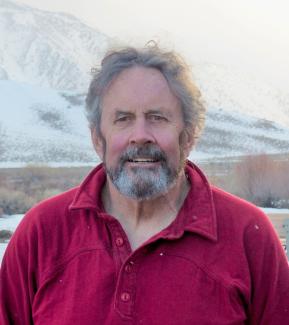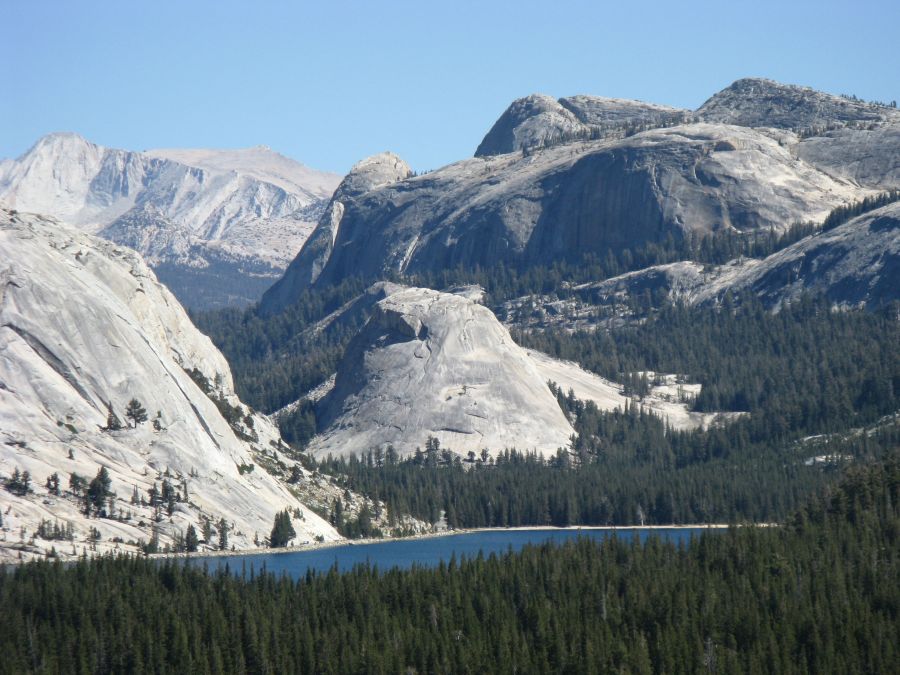
Distinguished Professor Emeritus
Education
PhD, MS, Geography, University of Michigan
BA, Geography, California State University, Hayward
Bio
Jeff Dozier has been on the UCSB faculty since 1974 and was the founding dean of the Bren School. He has led interdisciplinary studies in two areas: one addresses hydrologic science, environmental engineering, and social science in the water environment; the other is in the integration of environmental science and remote sensing with computer science and technology. From 1990-92, he was the senior project scientist for NASA’s Earth Observing System, when the configuration for the system was established. Among Dr. Dozier's honors are the 2009 Jim Gray Award from Microsoft for his achievements in data-intensive science and his selection as the 2010 Nye Lecturer for the Cryosphere group of the American Geophysical Union. A long-time backcountry skier, mountaineer, and rock climber, he helped lead six expeditions to the Hindu Kush range in Afghanistan and has a dozen first ascents there. The story behind the naming of Dozier Dome in the Sierra Nevada can be found in the Super Topo Climbing Forum.
In Memoriam: A Message from the Office of the Chancellor
|
December 16, 2024
|
Jeff Dozier (1944 – 2024)
Jeff Dozier, an environmental scientist, snow hydrologist, researcher, and academic died tragically on November 17. A resident of Mammoth Lakes, Jeff turned 80 in August 2024 and was looking forward to months of skiing this winter thanks to Mammoth Mountain’s free season passes to those over 80. The night before Jeff was to fly from Reno to attend a scientific conference, he was struck by a truck while in a crosswalk. He suffered multiple injuries that, despite the expertise and unrelenting efforts of the surgical and ICU teams at Renown Medical Center, resulted in his death.
Jeff was born and raised in Stockton, California, graduated in the class of 1962 from Stagg High School, earned a bachelor’s degree from Cal State Hayward and received a Master’s and PhD from the University of Michigan. In 1971, he joined Cal State Hayward as a lecturer until he moved to the Geography Department at the University of California at Santa Barbara in 1974, where he spent the remainder of his teaching career.
With his father and uncle, Jack and Bill Dozier, Jeff led six climbing expeditions to the Hindu Kush range of Afghanistan in the 1960s and 1970s, where he and his partners made multiple first ascents. On a snow-covered slope in Afghanistan, Jeff realized he had no idea whether it would avalanche and kill them all, and when he returned home, he turned to academic research in snow hydrology to find answers.
Jeff’s research combined field studies in high mountains and satellite remote sensing of snow properties. His findings and algorithms are used by hydrologists, water managers, and climate researchers worldwide. His work in the world’s mountains addresses the storage and melting of snow and has economic and social significance to the many people who depend on snow for their water resources.
Jeff worked as Project Scientist for Jet Propulsion Laboratory’s High-resolution Imaging Spectrometer program and as the Project Scientist for the NASA’s Earth Observation System. His work in remote sensing extended beyond snow to detection of flames by the Advanced Very High Resolution Radiometer, the first such a detection from space, and the foundation for subsequent satellite fire-detection algorithms.
In 2013, his expertise was sought for the Academy award-winning film “Frozen” and he is listed in the credits as an advisor for his help explaining the proper way to illustrate snow. He is an elected Fellow of the American Geophysical Union and American Association for the Advancement of Science and received NASA’s William T. Pecora award for scientific excellence and leadership in snow hydrology, remote sensing, and information systems and NASA’s Public Service Medal. Dozier Dome in Tuolumne Meadows is named after him.
In 1994, Jeff was named the founding Dean of the Bren School of Environmental Science & Management at UCSB, where for six years he recruited renowned faculty and developed one of the top environmental programs in the country. After his role as Dean, Jeff returned as professor in the Bren School, educating the next generation of Earth scientists. He was the primary advisor for 20 Ph.D. students and 34 Masters students, providing them with the path to realize their passions for the science of mountains, snow, and water. His favorite undergraduate class, The Alpine Snowpack, was a mixture of field and lecture-based instruction in the properties of snow.
At the time of his death, Jeff had active research projects on the International Space Station and had collaborations with colleagues in Europe and Asia. He continued to attend conferences that piqued his curiosity in disciplines beyond his own.
Jeff is survived by his wife Linda, his children Jill, Hayden (Sudathip), Simone, Jackson and Grayson, stepmother Shirley Dozier of Stockton, siblings Julie Nelson (Jamie) of Sacramento and Daniel Dozier (Ewa) of Stockton, grandchildren Tenaya, Owen, Skyler, and Sasha, and numerous nieces and nephews. More broadly, he is survived by his academic family who each count their time with Jeff among the greatest gifts that life can provide. Memorial services for friends and family will occur in the future in the Mammoth Lakes area. The flag at UC Santa Barbara will be lowered to half-mast in his honor on Tuesday, December 17, 2024.
Sincerely,
Henry T. Yang
Chancellor

DOZIER DOME (BEHIND PYWIACK DOME) IN SEPTEMBER FROM THE HIGHWAY ACROSS TENAYA LAKE
Read first hand accounts of climbing Dozier Dome and see more photos from University of Oregon .
Dozier Dome:
A Lasting Tribute to a Visionary Environmental Scientist
Rising from the granite expanses of the Sierra Nevada, Dozier Dome stands as a tribute to Dr. Jeff Dozier, the founding dean of the Bren School of Environmental Science & Management. Dr. Dozier's groundbreaking work in hydrology, snow science, and remote sensing redefined our understanding of mountain ecosystems and water resources.
The naming of Dozier Dome reflects his deep connection to the Sierra, where he conducted much of his research and found inspiration in the natural beauty of the landscape. The towering granite dome serves as a fitting symbol of his enduring legacy—strong, steadfast, and integral to the environmental sciences.
In the serene light of Yosemite’s granite peaks, Dozier Dome remains a timeless reminder of the pioneering spirit and unwavering dedication that Jeff Dozier brought to his work and his world.